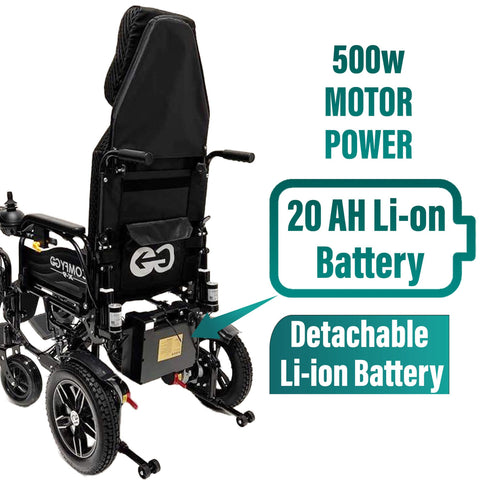Electric Wheelchairs Batteries
Electric Wheelchairs: Understanding Battery Types and Their Impact on Range
Types of Batteries Used in Electric Wheelchairs:
There are two primary types of batteries used in electric wheelchairs: lead-acid (gel) batteries and lithium-ion batteries.
Lead-Acid (Gel) Batteries:
- Lead-acid batteries have traditionally been the go-to choice for powering electric wheelchairs.
- These batteries are known for being heavier and bulkier, which can contribute to the overall weight of the wheelchair.
- They have lower energy density, resulting in shorter ranges compared to other battery types.
- Despite their lower cost, they may require more frequent charging and have a shorter lifespan.
Lithium-Ion Batteries:
- Lithium-ion batteries have gained popularity in recent years due to their lighter weight, compact size, and higher energy density.
- They offer longer ranges and require less frequent charging compared to lead-acid batteries.
- Although they tend to be more expensive upfront, they have a longer lifespan and require less maintenance.
Determining Range with Two Batteries of Equal Capacity:
To illustrate how battery type impacts range, let's consider an example with two electric wheelchairs, each equipped with batteries of equal capacity—one with lead-acid batteries and the other with lithium-ion batteries.
Assuming both wheelchairs have the same motor efficiency and are operated under identical conditions, the wheelchair with lithium-ion batteries will typically travel a greater distance on a single charge compared to the one with lead-acid batteries. This is due to the higher energy density of lithium-ion batteries, allowing them to store and deliver more energy for propulsion.
Impact of Battery Type on Range:
The type of battery directly influences the range of an electric wheelchair. While lead-acid batteries may suffice for shorter distances and are more budget-friendly, lithium-ion batteries offer greater range and durability, making them ideal for users who require longer travel distances or desire fewer charging interruptions.
In conclusion, when selecting an electric wheelchair, it's essential to consider the type of battery and its impact on range. By choosing the right battery type based on individual needs and usage patterns, users can enjoy optimal performance and independence in their mobility devices.















